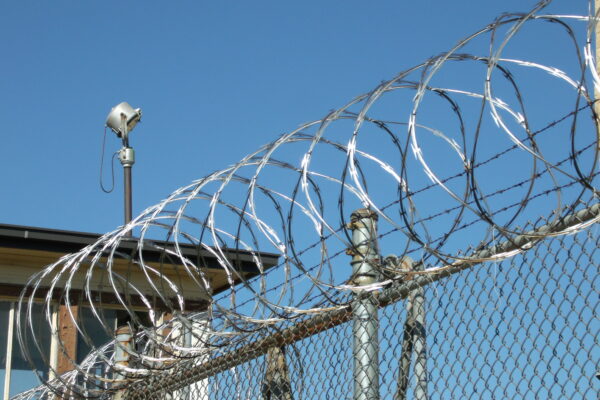People awaiting trial before a Baton Rouge criminal court were coerced into paying hundreds of dollars to a company before they were released from jail – even after they had paid their bail, according to a lawsuit filed last night by the Southern Poverty Law Center (SPLC), the American Civil Liberties Union (ACLU), and the ACLU of Louisiana.
Even after they were released, people awaiting trial were threatened with re-arrest if they did not pay additional monthly fees to the company, Rehabilitation Home Incarceration, which supervises people awaiting trial. The lawsuit describes how the company and its owner have arranged for at least three years with East Baton Rouge Parish officials to detain people awaiting trial and coerce the payments from them. The company, its owner, Cleve Dunn Sr., and the parish are named in the lawsuit.
“This is a disturbing example of our justice system being twisted beyond recognition by a scheme to make money,” said Sam Brooke, SPLC deputy legal director. “People who had already paid their bail were held ransom and extorted out of hundreds and thousands of dollars. They simply wanted their freedom while they awaited their day in court. That desire was exploited by Rehabilitation Home Incarceration.”
In 2015 and 2016, more than 300 people were assigned to Rehabilitation Home Incarceration for pretrial supervision by 19th Judicial District Judge Trudy A. White. White often made these orders for indefinite periods of time without determining whether people were a flight risk or posed any danger to the public. She did not assess their ability to pay the company’s signup fee of $525 and its subsequent monthly fees and other charges.
One plaintiff in the lawsuit, Kaiasha White (no relation to the judge), was forced to stay in jail for a month as she and her family struggled to pay both her bond and the Rehabilitation Home Incarceration signup fee. The jail would not release her without notice from the company that its fee had been paid.
“This practice needs to stop,” said White. “When you have to go to court, you shouldn’t have to worry about being held for ransom because a business wants to profit off of you.”
Henry Ayo, another plaintiff, was in jail for two months because he and his wife couldn’t afford to pay his bond and the signup fee. After paying and being released, Ayo was informed by a company representative that he had to pay $225 a month while awaiting trial, or he could be arrested and jailed again. Ayo and his wife paid the company approximately $1,000. He didn’t receive supervision services beyond being required to make phone calls that often went unanswered.
“This is predatory and illegal. Rehabilitation Home Incarceration puts its own price on people’s liberty and forces them to pay up, over and over again,” said Brandon Buskey, senior staff attorney with the ACLU’s Criminal Law Reform Project. “Worse, this could not happen without the court and the jail enabling this scam, and ignoring the rights of those charged and presumed innocent.”
The lawsuit accuses Rehabilitation Home Incarceration’s executive director, Cleve Dunn Sr., of operating an illegal racketeering enterprise under Louisiana and federal law through his company. It also accuses the company and the East Baton Rouge Parish of violating the Fourth and 14th Amendment rights of individuals subjected to this scheme and raises additional state law claims of unjust enrichment and conversion, as well as a violation of the Louisiana Unfair Trade Practices Act.
Judge White and others associated with Rehabilitation Home Incarceration are political allies. For example, Cleve Dunn Sr. was paid for marketing services for the judge’s 2014 re-election campaign. Also, his son, Cleve Dunn Jr., served as chairman of White’s re-election campaign committee.
“The people of Baton Rouge should not be forced to support private companies in order to secure their release from jail,” said Marjorie R. Esman, executive director of the ACLU of Louisiana. “Those awaiting their day in court are entitled to be treated equally regardless of the size of their bank accounts. Instead, people have been jailed and extorted after their release simply because they couldn’t pay a private business and its owners. That is not how our system of justice is supposed to work.”
The lawsuit seeks to recover damages for the senior Dunn’s practice of using his company to extort fees from arrestees under the threat of arrest, jail and bond revocation and for East Baton Rouge Parish’s and Rehabilitation Home Incarceration’s practice of detaining arrestees until they paid the company’s initial fees. It also seeks to recover damages for those who paid fees to the company.
Ayo v. Dunn et al. is part of the ACLU’s litigation and legislative effort to defend and advance the rights of those who have been arrested and are awaiting trial. This work also includes ending cash bail and improving public defender systems.
It is also part of the SPLC’s economic justice efforts to ensure that people are not punished or exploited because of their economic status.

